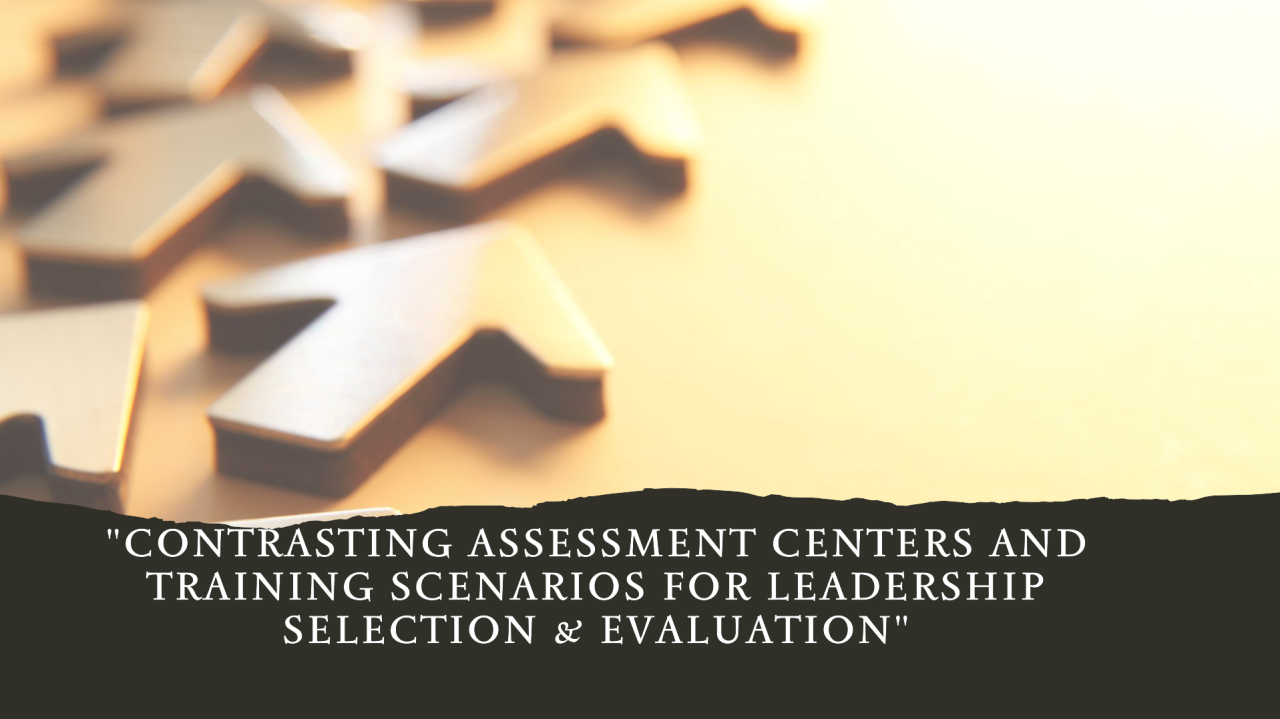In the area of leadership selection and development, two prominent methodologies often come to the forefront: assessment centers and training scenario exercises. While both are aimed at evaluating candidates for leadership positions, they operate on distinct principles and serve very different purposes in the talent management process.
Assessment Centers
Assessment centers have long been recognized as robust tools for evaluating individuals’ suitability for leadership roles. This approach typically involves a series of standardized exercises, simulations, and psychometric assessments designed to gauge various leadership competencies such as problem-solving, decision-making, communication, and leadership style. Candidates are observed and assessed by trained assessors who evaluate their performance against predefined criteria.
The primary objective of assessment centers is to provide a comprehensive and objective evaluation of candidates’ capabilities, often in a simulated work environment. Through carefully designed exercises and simulations, assessors can evaluate how candidates respond to workplace challenges, interact with others, and demonstrate leadership potential for the role they are seeking. The insights gained from assessment centers help organizations make informed decisions about candidate selection, succession planning, and leadership development initiatives.
Training Scenarios Exercises
On the other hand, training scenario exercises are focused on providing individuals and groups with hands-on experience in tackling real-world challenges within their organizations. These exercises typically involve immersive training sessions based on industry-accepted practices, the development of new ideas, skills practice, or the introduction of new operational theory. Unlike assessment centers, the emphasis here is not on evaluation but on experiential learning, skill development, and continued practice.
Training scenario exercises aim to simulate the complexities and dynamics of skills application and leadership roles, allowing individuals to apply their knowledge, skills, and judgment in a realistic setting. Participants receive feedback and guidance from superiors or coaches, enabling them to reflect on their actions, identify areas for improvement, and refine their capabilities through practice. These exercises are often used as part of an organization’s training regimen and may serve as leadership development tools to enhance individuals’ competencies and prepare them for future leadership roles.
Wrap Up
While assessment centers focus on evaluating candidates’ existing competencies and potential, training scenario exercises are geared towards developing and refining those competencies through experiential learning. Both approaches play complementary roles in the talent management process, with assessment centers informing selection decisions and training scenario exercises supporting leadership development efforts.
When thinking about the application and development of assessment centers and training scenario exercises, keep in mind that they represent distinct yet interconnected approaches to leadership selection and development. By leveraging the strengths of both methodologies, organizations can identify and nurture the next generation of leaders who are equipped to navigate the complexities of today’s fire service environment.

